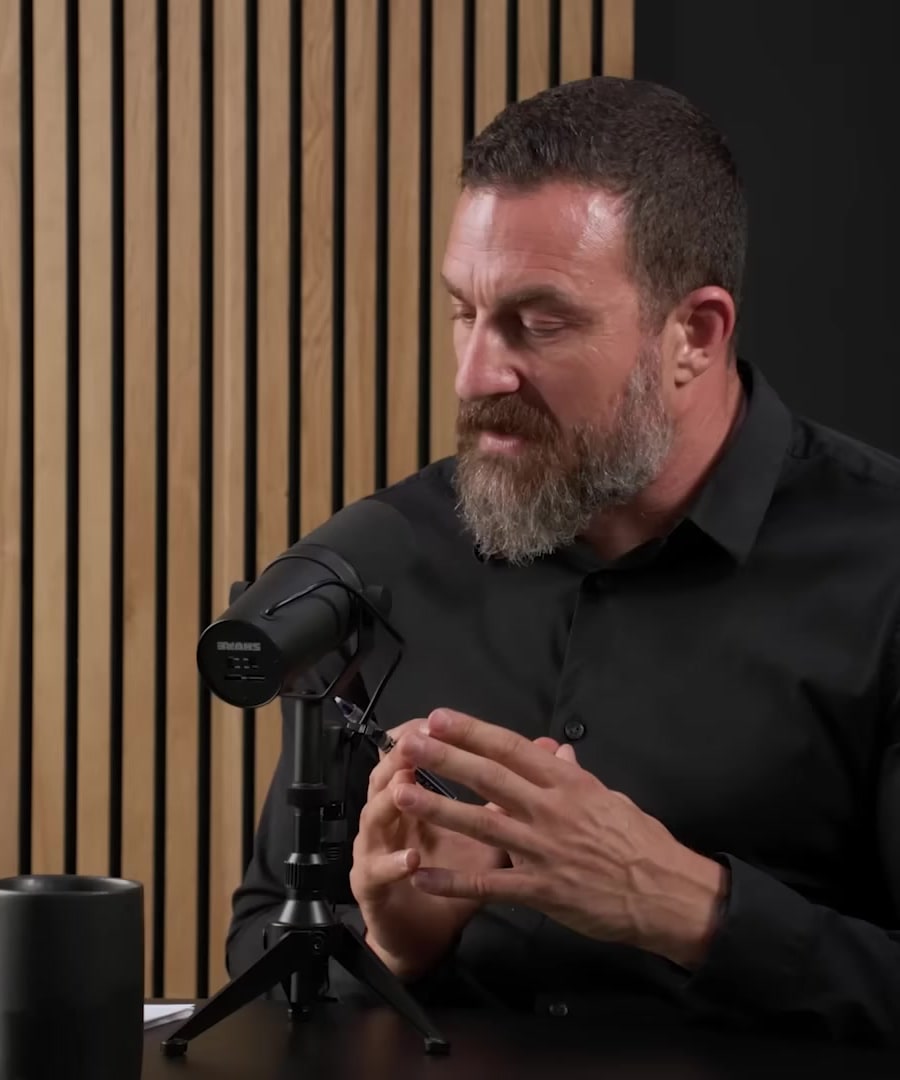I did a hormone test and had low progesterone, what would you do?
I couldn't find specific advice on what to do about low progesterone levels from the Huberman Lab podcast data. It's important to consult with a healthcare provider who can help you understand the cause of your low progesterone and recommend appropriate treatments or lifestyle changes based on your individual health needs.
RELATED QUESTIONSCan you recommend any treatment for low progesterone?
I couldn't find any specific recommendations for treating low progesterone levels discussed on the Huberman Lab podcast. For medical issues like this, it's crucial to consult with a healthcare provider who can offer personalized advice and treatment options based on your individual health profile and needs. They may discuss hormone therapy, supplements, or lifestyle changes depending on the underlying cause of the low progesterone.
RELATED QUESTIONSWhat causes low progesterone?
Sources:
Low progesterone levels can result from various factors, which are often related to irregularities in the menstrual cycle's phases. Here's a concise summary based on the discussions from the Huberman Lab:
-
Menstrual Cycle Phases: During the early part of the menstrual cycle, specifically the follicular phase, estrogen levels are on the rise which in turn primes the body for a subsequent increase in progesterone during the luteal phase. If there are irregularities or imbalances in this cycle, it might lead to lower progesterone levels during the luteal phase or just after ovulation 1.
-
Menstrual Inconsistencies: For women who are perimenopausal or have ceased menstruating (menopause), fluctuations in progesterone are tied to the less frequent occurrence or complete stop of the menstrual cycle, contributing to overall lower levels of progesterone 1.
-
Follicular Development: Problems with follicular development during the ovulatory cycle can also lead to lower hormone production. This phase is crucial as it sets the stage for progesterone production after ovulation 2.
For a precise diagnosis and treatment, it's recommended to consult a healthcare provider who can provide tailored advice and possibly hormone level tests to determine the exact cause of low progesterone.
RELATED QUESTIONS-
What causes low progesterone?
Sources:
Low progesterone can be influenced by several physiological processes, primarily tied to the menstrual cycle and ovarian function. Here are some highlighted causes based on discussions in the Huberman Lab:
-
Menstrual Cycle Dynamics:
- Progesterone levels typically rise during the luteal phase following ovulation. If there is any disruption in ovulation or if ovulation does not occur, progesterone production will be inadequate 1.
- The menstrual cycle is sensitive to stress, and various lifestyle factors can impact regularity and hormonal balance, leading to potential issues with progesterone levels 1.
-
Issues with Ovulation:
-
Phase of Life:
- As women approach menopause (perimenopause) or after menopause, the diminished frequency or cessation of menstruation leads to consistently lower levels of progesterone 1.
Understanding these aspects can help in identifying potential underlying causes of low progesterone. A healthcare professional can provide a more personalized diagnosis and treatment plan.
RELATED QUESTIONS-
I did a hormone test and had low progesterone, what would you do?
- RELATED QUESTIONS
Can you recommend any treatment for low progesterone?
- RELATED QUESTIONS
What causes low progesterone?
- RELATED QUESTIONS
What causes low progesterone?
- RELATED QUESTIONS

